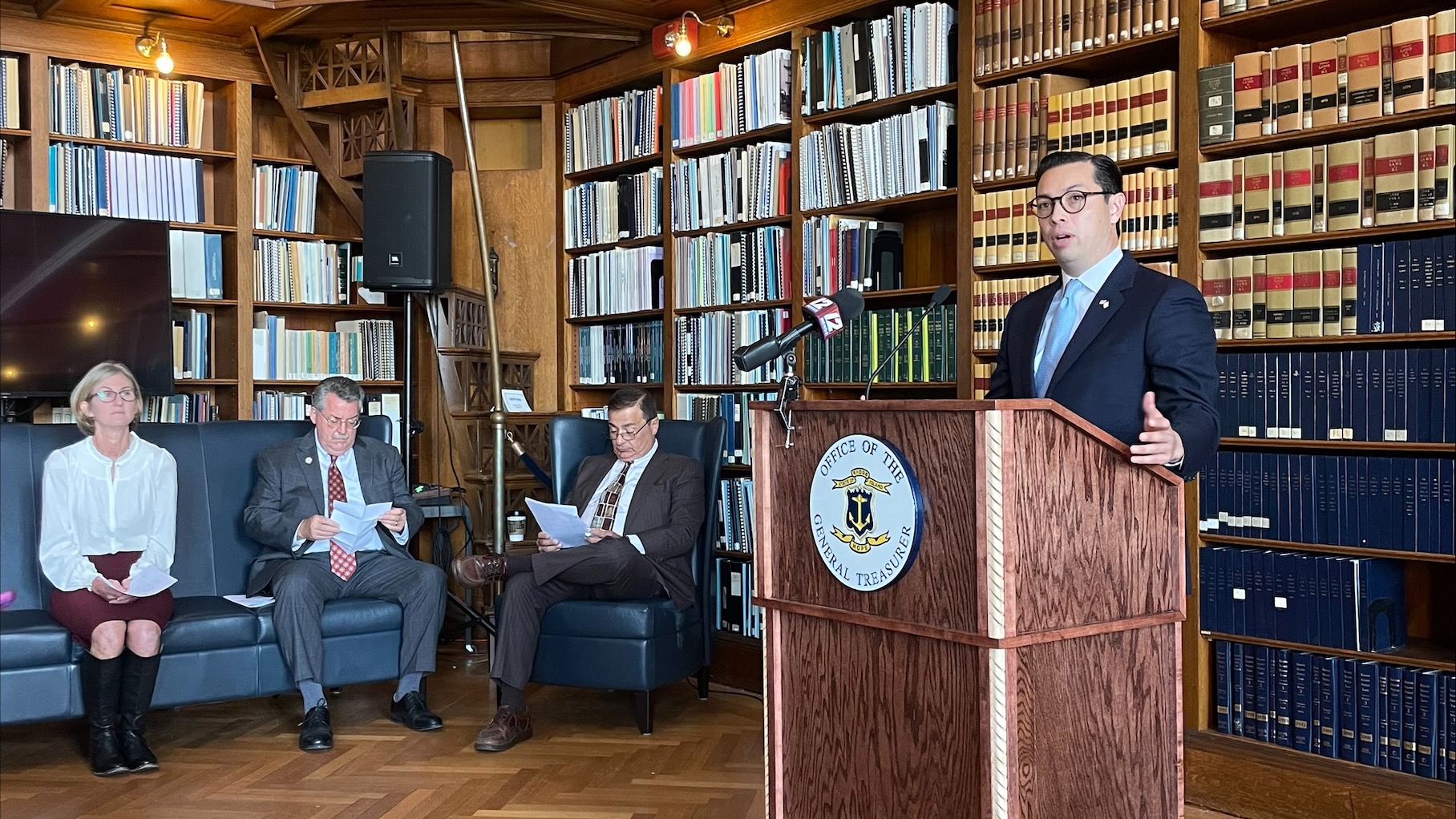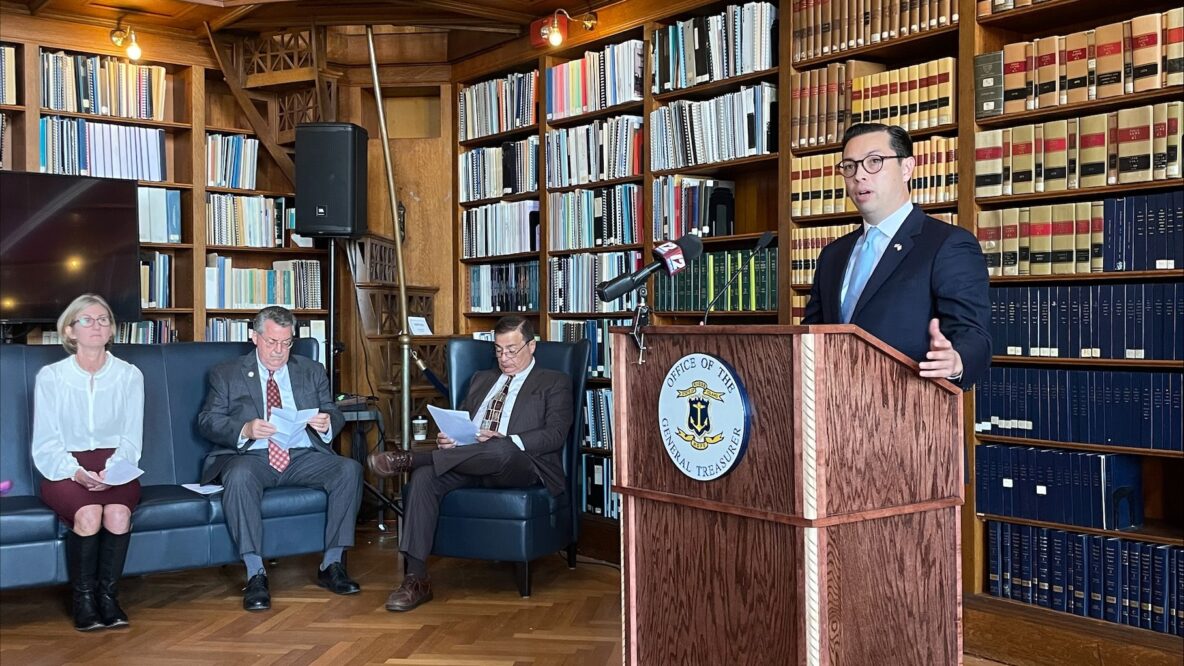By Rhode Island General Treasurer James A. Diossa | February 18, 2025

Baby Bonds are an increasingly popular bipartisan government policy in which every child born into poverty receives a publicly funded trust account at birth. This “start-up capital” allows young adults to access education, home ownership, and entrepreneurship, enabling them to build wealth and lead lives that are hopeful, fulfilling, productive, prosperous, and self-directed. Follow our Baby Blogs series to learn about the vision, politics, and people behind Baby Bonds and their transformative impact on the lives of young people, their families, communities, and our economy.
In Rhode Island, the state motto is “hope.” In this installment of Baby Blogs, Rhode Island General Treasurer James A. Diossa outlines a new Baby Bonds proposal, advanced in partnership with Rhode Island Governor Daniel McKee, and describes how this investment in people will provide hope—and pay dividends.
An investment is an allocation of resources set aside with the expectation that it earns income or increases in value over time. Investments are usually thought of as stocks or bonds held by wealthy individuals. Baby Bonds Programs—whether they be in Rhode Island or elsewhere— likewise represent an investment, though not in the traditional way. Baby Bonds are more than a long-term investment in stocks and bonds. They are an investment in people.
As the General Treasurer of Rhode Island for the past two years, I have made the Rhode Island Baby Bonds Trust Act a top priority. And for the first time nationally, a Baby Bonds program is included in a budget article. Governor Daniel J. McKee’s proposed budget for Fiscal Year 2026 included Treasury’s Baby Bond program. This program would create a $3,000 trust for each Rhode Island child born to a family receiving Temporary Assistance for Needy Families (“TANF”) funds within the first year of the child’s life. In all, the program would reach about 150 children annually from those families across Rhode Island that are most in need. Each child that claims a disbursement will receive between $10,000 and $32,000, depending on the age of withdrawal and assuming a 7 percent rate of return, the same as the target rate return for the state’s pension fund.
If approved by the legislature, the Baby Bonds program will be a momentous leap towards closing wealth gaps that have existed since the state’s founding. To do so, it recognizes a distinction between wealth and income, both key indicators of financial security for a family and for an individual.
Generally, public assistance programs seek to raise personal incomes in real-time, so that the impact is felt in the short term. Baby Bond programs are unique in their long-term outlook. Whereas income helps families afford their bills today, wealth building provides families with opportunity tomorrow or—in this case—eighteen years from now. This could present a challenge to policymakers, as people generally favor programs aimed at a more immediate impact. But while income can ebb and flow over the course of an individual’s lifetime, wealth “reflects years of prior circumstances and decisions.” In this regard, wealth is a more durable, long-lasting expression of financial security for families. That is the core reason for the Baby Bond program and the same reason those with disposable income are encouraged to invest: long-term financial security.
By creating a $3,000 trust, the state sends a signal to each child that it believes in their ability to achieve—that it invested in their future and in their success. This opens a world of possibilities many families may have thought was foreclosed to their children. Rhode Island’s state motto is hope. And by investing in people through Baby Bonds, we provide hope. Hope to go to school without debt. Hope to open a business. Hope in the American Dream of homeownership. When we invest in our people, the state and the country see the dividends.
James A. Diossa was elected Rhode Island General Treasurer in November 2022 and sworn in on January 3, 2023. Since taking office, he has led efforts to sustainably grow and diversify Rhode Island’s nearly $12B pension fund and raise the state’s bond rating. Diossa has expanded financial education opportunities and invested in Rhode Islanders through innovative initiatives aimed at increasing economic opportunities, self-sufficiency, and retirement savings for all. Throughout his years in public service, Treasurer Diossa has demonstrated his commitment to offering residents the tools and opportunities for creating sustainable wealth.
If you missed previous installments of our Baby Blogs series, read them here.
Learn more about Baby Bonds in Rhode Island.
To share feedback on this blog, or for questions about Baby Bonds, email David Radcliffe at radclifd@newschool.edu.
To learn more, explore our Baby Bonds resources.

